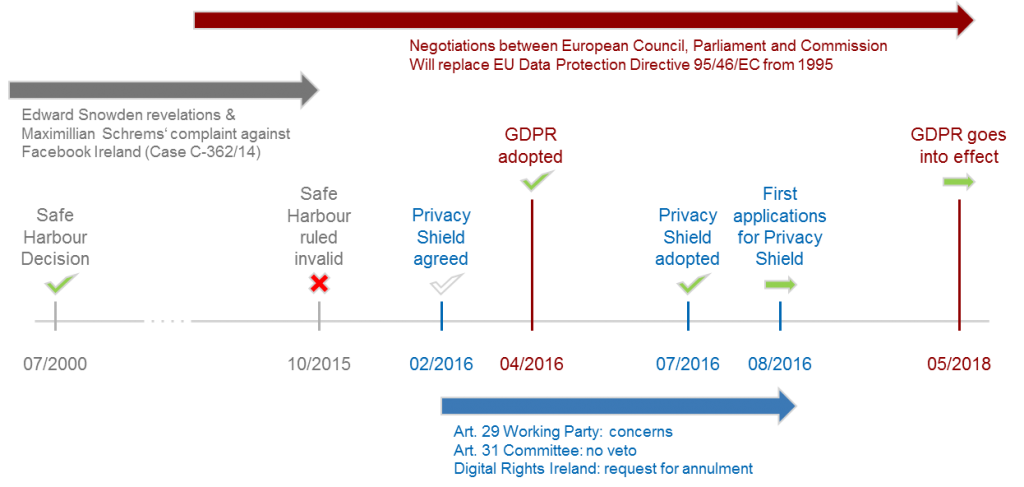

Thanks to the efforts of Max Schrems, the Safe Harbour Agreement was invalidated in October 2015
To ensure that the personal data of European citizens was protected in a manner complaint with EU data protection regulations after it had been transferred to the USA, deals such as the Safe Harbour Agreement and the EU-US Privacy Shield were drafted and implemented to address the shortcomings of nationwide data protection in the USA.
"On top of this, there is also the concern and suspicion that commercially lucrative data from the EU can (and will) be tapped on the American side."This effectively creates an impasse because US providers are subject to American legislation such as the PATRIOT Act, the USA FREEDOM Act, and the CLOUD Act, which are designed to ensure that US authorities and intelligence agencies have access to personal data of EU citizens.
On top of this, there is also the concern and suspicion that commercially lucrative data from the EU can (and will) be tapped on the American side.
However, in July 2000, in the context of an examination of the adequacy of the protection of personal data transferred to other countries, the European Commission took the position that the "Safe Harbour" principles developed by the US were in compliance with Article 25 of the EU Data Protection Directive 95/56/EC and would provide "adequate protection" for the transfer of personal information from the EU to the US.
The European Commission thus gave approval for transfers of personal data to the US by means of executive decision no. 2000/520/EC, the so-called "Safe Harbour decision".
However, in 2013 this decision was called into question by the Snowden revelations.
The game was over on 6 October 2015 when the CJEU delivered its judgment in the case of Maximillian Schrems v Data Protection Commissioner.
"...in 2013 this decision was called into question by the Snowden revelations."In this judgment the Court invalidated the European Commission's Safe Harbour Decision, because "legislation permitting the public authorities to have access on a generalised basis to the content of electronic communications must be regarded as compromising the essence of the fundamental right to respect for private life".

Max Schrems in front of the office of the Irish Data Protection Commissioner in Dublin
"...the Privacy Shield turned out to be rather porous and it was also struck down by the CJEU in July 2020 in the context of a further legal challenge mounted by Max Schrems."The European Commission approved the Privacy Shield on 12 July 2016 and it entered into effect the same day.
However as we shall see in the next part, the Privacy Shield turned out to be rather porous and it was also struck down by the CJEU in July 2020 in the context of a further legal challenge mounted by Max Schrems. ⬆